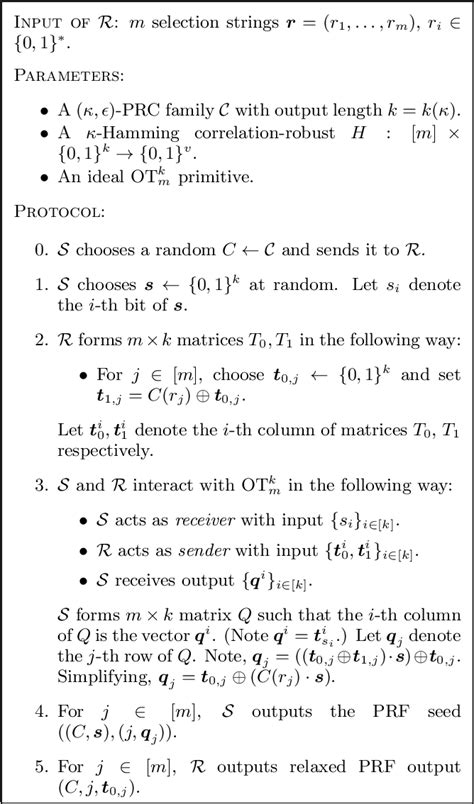Private Set Intersection (PSI) is a fundamental problem in cryptography, allowing two parties to compute the intersection of their private sets without revealing any additional information. One of the key building blocks for PSI is the Oblivious Pseudorandom Function (OPRF). In this article, we will delve into the world of OPRFs, exploring their importance, functionality, and recent advancements, particularly in the realm of batched OPRFs.
The Importance of Private Set Intersection
PSI is a critical component in various applications, such as secure data sharing, private recommendation systems, and genomic research. By enabling two parties to compute the intersection of their private sets without revealing any additional information, PSI ensures the confidentiality and security of sensitive data. For instance, in the context of medical research, PSI can be used to identify common genetic markers between two datasets without compromising the confidentiality of individual patient records.
What are Oblivious Pseudorandom Functions (OPRFs)?
OPRFs are a crucial cryptographic primitive that facilitates the secure computation of set intersection. An OPRF is a protocol that enables a client to obliviously evaluate a pseudorandom function (PRF) on a private input, without revealing the input to the server. In other words, the client can compute the PRF value for a specific input without the server learning anything about the input.
How do OPRFs work?
In a basic OPRF protocol, the client and server interact as follows:
- The client sends a blinded version of their private input to the server.
- The server evaluates the PRF on the blinded input and returns the result to the client.
- The client unblinds the result to obtain the PRF value for their original input.
The key property of an OPRF is that the server learns nothing about the client's input, ensuring the confidentiality of the client's data.
The Need for Batched OPRFs
In many applications, such as PSI, multiple OPRF evaluations are required. However, performing these evaluations sequentially can be computationally expensive and inefficient. To address this, batched OPRFs have been proposed, which enable the client and server to evaluate multiple OPRFs in a single interaction.
Recent Advancements in Batched OPRFs
Recent research has led to the development of more efficient and secure batched OPRF protocols. These protocols leverage various techniques, such as batching, vectorized operations, and advanced cryptographic primitives, to improve performance and reduce overhead.
One notable example is the batched OPRF protocol based on the Simplest Oblivious PRF (SOPRF) construction. This protocol achieves significant performance improvements by batching multiple OPRF evaluations into a single operation, reducing the computational overhead and communication complexity.
Benefits of Efficient Batched OPRFs
The development of efficient batched OPRFs has far-reaching implications for various applications, including:
- Improved performance: Batched OPRFs can significantly reduce the computational overhead and communication complexity of PSI protocols, making them more practical for real-world applications.
- Enhanced security: By enabling the secure evaluation of multiple OPRFs in a single interaction, batched OPRFs can reduce the risk of information leakage and improve the overall security of PSI protocols.
- Increased scalability: Efficient batched OPRFs can support larger input sizes and more complex computations, making them suitable for a broader range of applications.
Real-World Applications of Batched OPRFs
Batched OPRFs have the potential to revolutionize various industries, including:
- Healthcare: Secure computation of genetic data can be achieved using batched OPRFs, enabling the identification of common genetic markers without compromising patient confidentiality.
- Finance: Batched OPRFs can facilitate secure data sharing and analysis in the financial sector, enabling institutions to identify potential security threats without revealing sensitive information.
- Recommendation systems: Batched OPRFs can be used to develop private recommendation systems, ensuring that user data remains confidential while still providing personalized recommendations.
**

Gallery of Oblivious Pseudorandom Functions






Frequently Asked Questions
What is an Oblivious Pseudorandom Function (OPRF)?
+An OPRF is a protocol that enables a client to obliviously evaluate a pseudorandom function (PRF) on a private input, without revealing the input to the server.
What is Private Set Intersection (PSI)?
+PSI is a fundamental problem in cryptography, allowing two parties to compute the intersection of their private sets without revealing any additional information.
What are the benefits of efficient batched OPRFs?
+Efficient batched OPRFs can significantly reduce the computational overhead and communication complexity of PSI protocols, making them more practical for real-world applications.
We hope this article has provided you with a comprehensive understanding of the importance of Oblivious Pseudorandom Functions (OPRFs) in Private Set Intersection (PSI) protocols. The development of efficient batched OPRFs has far-reaching implications for various applications, and we look forward to seeing the impact of this technology in the years to come.
